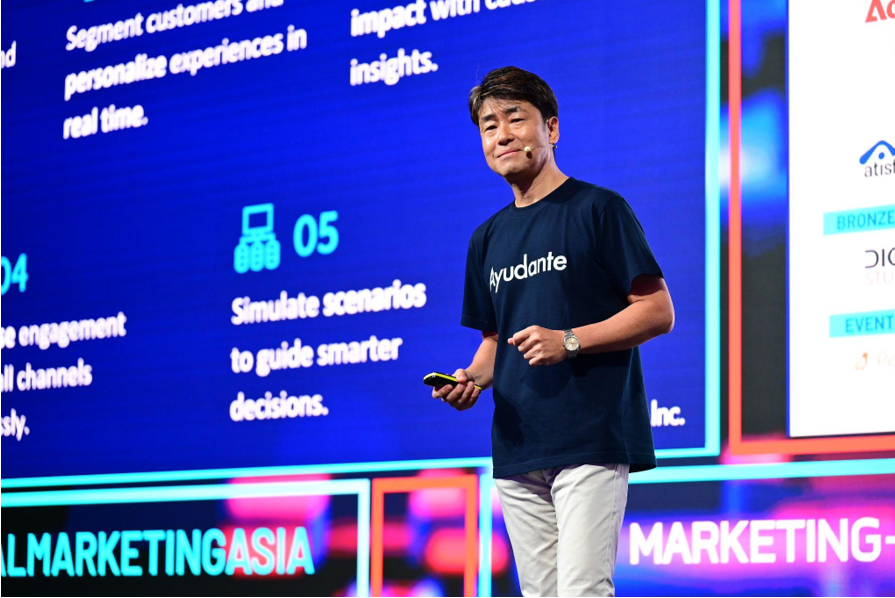

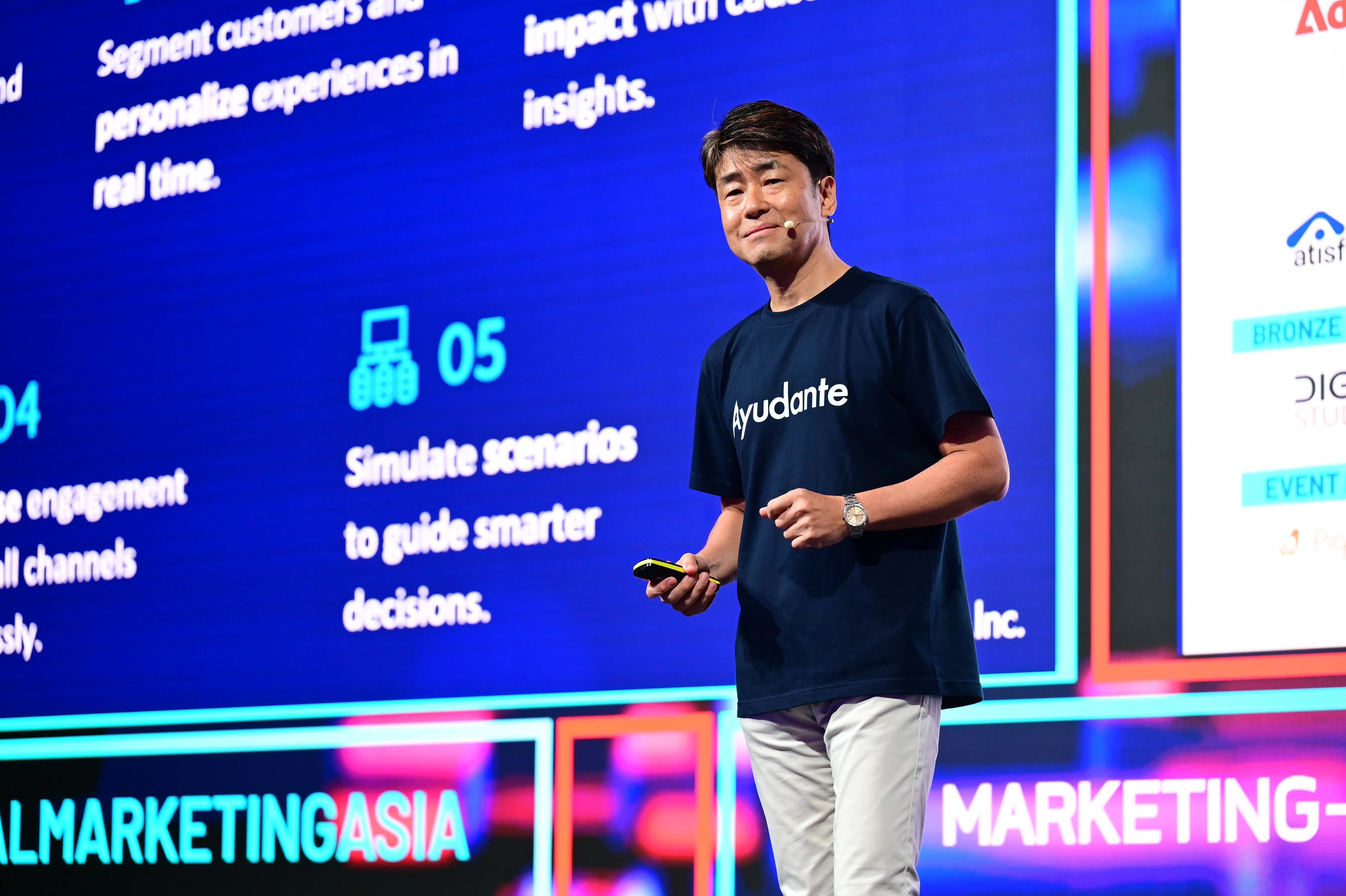
This year, Ayudante participated in Digital Marketing Asia (DMA) Singapore 2025, a two-day event bringing together industry leaders, innovators, and marketing professionals across the region.
We took part both as an exhibitor and speaker, with our Ayudante APAC CEO, Naohiro Yamaura, invited to deliver a keynote on The Future of AI-Powered Marketing Measurement, a timely topic in a year defined by rapid advances in artificial intelligence.
Alongside the presentation, Ayudante also hosted its first-ever Google Analytics 4 Auditor Booth, where attendees explored our in-house tool built to assess and optimise GA4 configurations.
(You can read more about DMA 2025, our booth, and the GA4 Auditor Tool in Raihana’s article here.)
While many sessions at DMA centered on the potential of AI, Yamaura’s talk brought the spotlight back to an often-overlooked truth: without accurate measurement, AI cannot deliver meaningful results.
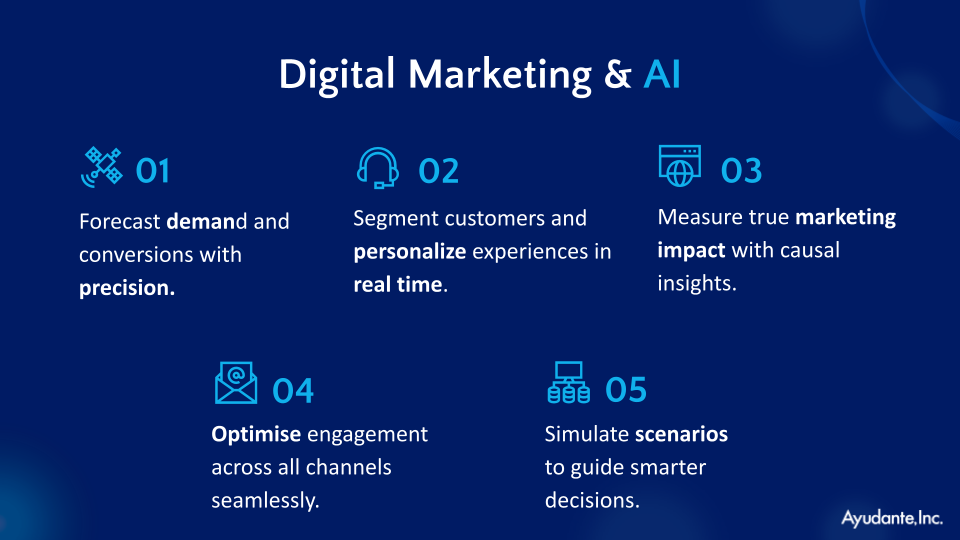
Naohiro began by acknowledging how deeply AI has become integrated into our daily lives.
From recommendation engines to automated reporting, AI tools are now embedded across every marketing platform. Yet, he reminded the audience, AI’s power lies not in its algorithms but in the data it consumes.
“AI’s role in marketing is prediction,” he explained. “But accurate prediction depends on two things, how well we measure user behaviour and how reliably we capture conversion data.”
He illustrated this point through the classic marketing funnel, which are awareness, consideration, and conversion.
AI analyses the measurable stages: how users interact (behavioural data) and what actions they complete (conversion data). These data sets fuel its predictive capabilities.
"No measurement, no prediction.
AI is only as good as the quality of data you put into it."
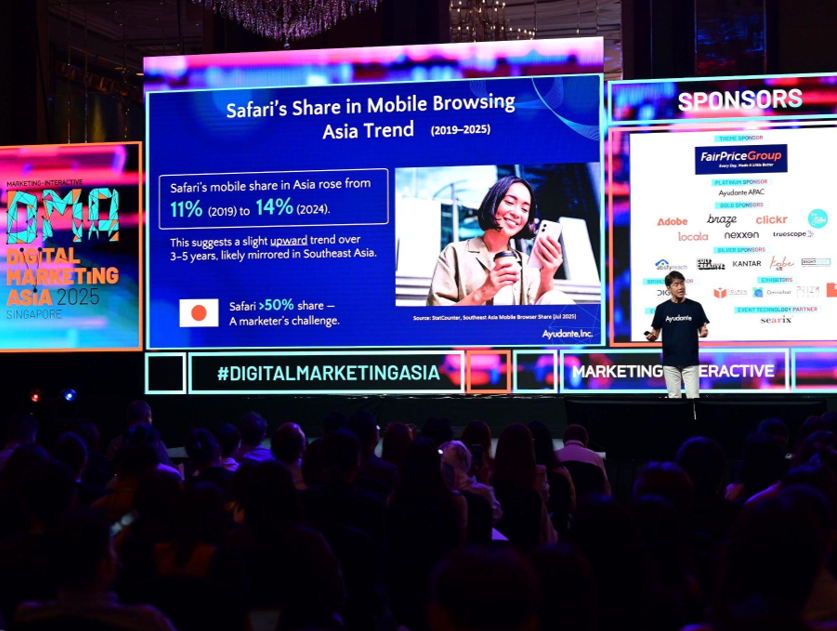
In the next section, Naohiro addressed what he described as a “measurement crisis”, which is a dual challenge shaped by technological disruption and regulatory pressure.
The first challenge stems from browser privacy measures such as Apple’s Intelligent Tracking Prevention (ITP), which limits cookie-based tracking and creates what he called a data desert.
Even though Google has paused the phase-out of third-party cookies, emerging technologies like the Privacy Sandbox are already reshaping how marketers collect and use data.
In Japan, Safari dominates more than half of mobile browsing, making this disruption especially acute. And while Southeast Asia’s Safari share remains smaller, it continues to rise — a trend marketers across the region must prepare for.
.png)
The second force is the tightening of global privacy laws such as GDPR and CPRA, which limit how companies handle personal data.
Naohiro pointed out that while these regulations vary by country, many Southeast Asian jurisdictions now classify cookies as personal data or data likely to identify an individual.
The result is what he called signal loss — where AI systems lose visibility and predictive accuracy due to incomplete data. Without sufficient input, even the smartest algorithms begin to falter.
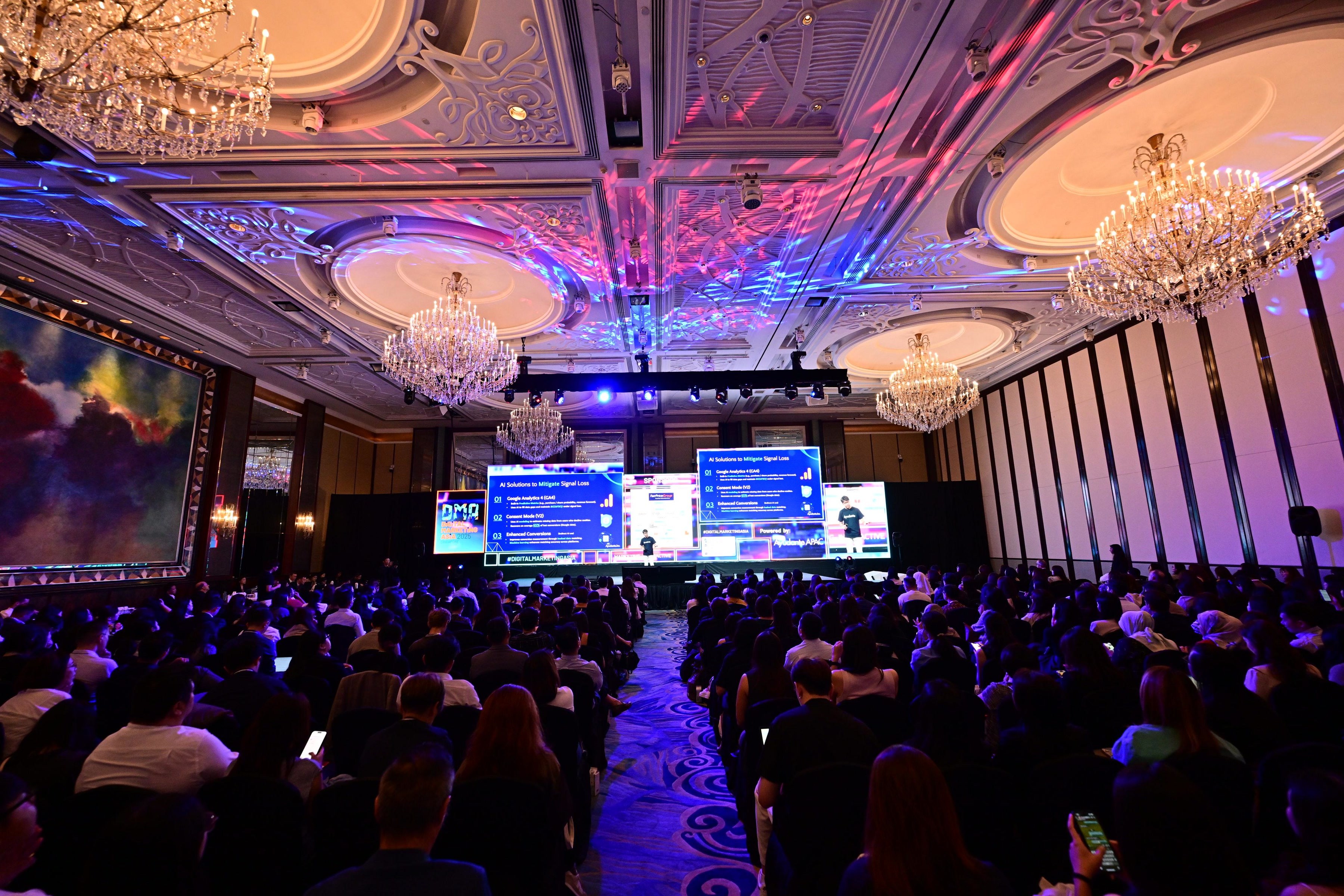
Rather than seeing this as a setback, Naohiro encouraged marketers to view it as a chance to rebuild a stronger, privacy-aware foundation.
He highlighted three key Google solutions designed to mitigate signal loss:
Together, these tools help marketers predict and protect — using AI to drive growth while maintaining compliance.
"Measurement is the foundation of everything.
Get that right, and AI will work for you."
Q&A: Prediction and Privacy Go Hand in Hand

During the Q&A session, the audience submitted many insightful questions, though time allowed for only one or two to be addressed live.
One attendee asked how industries with strict privacy laws, such as healthcare, could still benefit from AI and GA4 without relying on traditional tracking signals.
Representing Ayudante, I stepped in to share that AI is about prediction, but prediction only works when you have a strong data-measurement and privacy-conscious data foundation. Reliable, well-structured data allows AI models to learn effectively while respecting privacy boundaries.
Then, I turned to the issue of consent.
As marketers, of course we want to collect as much data as possible, in order to improve attribution and retargeting.
.JPEG)
But as I reminded the audience, we are also consumers ourselves. Would any of us be comfortable if our own data were used without consent?
"Implementing a clear cookie consent banner isn't just a legal formality.
It's how we build a sustainable relationship between business and customers, founded on mutual a trust.
It does not only apply not to healthcare but to every industry"
Closing Thoughts
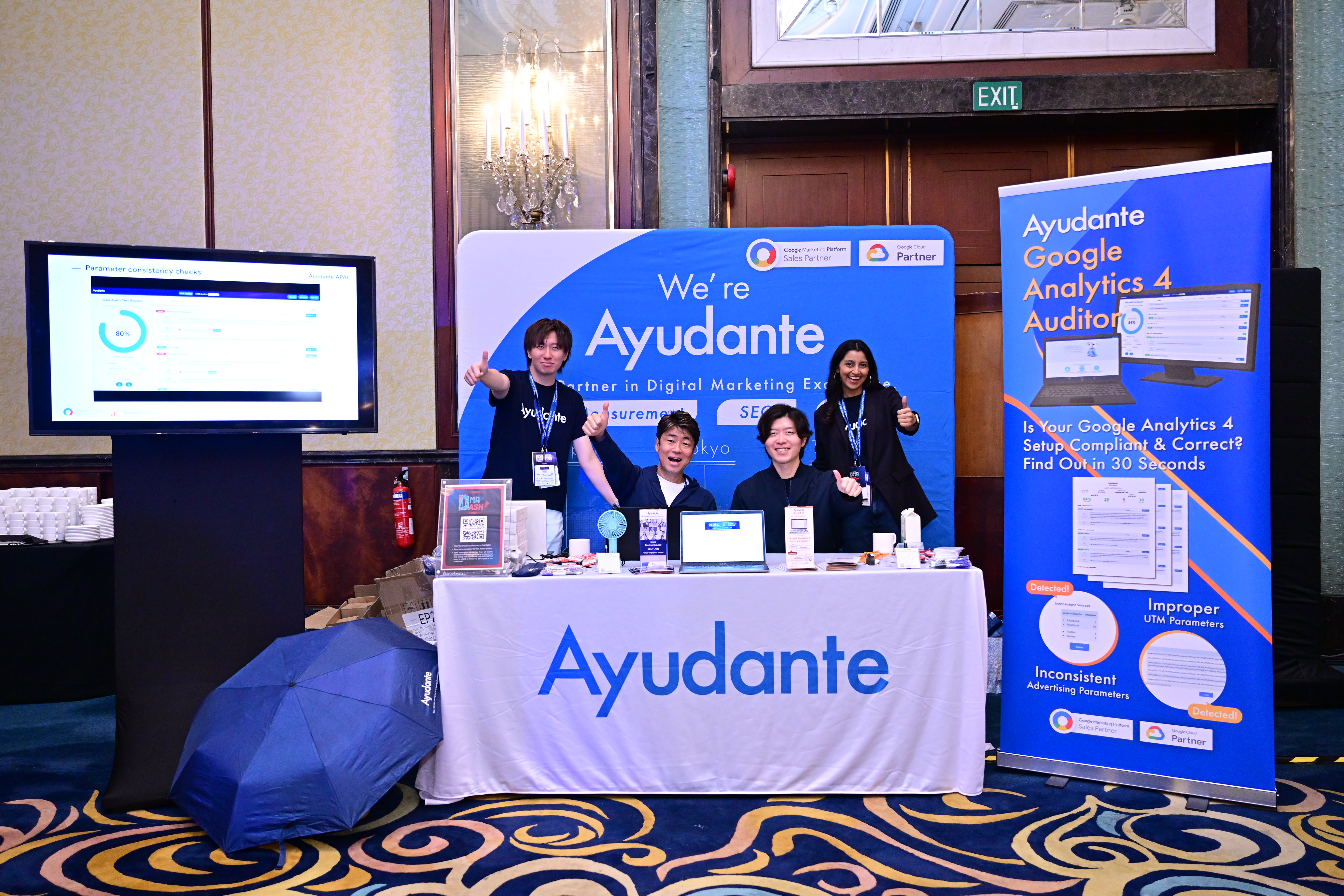
In the last section of this article, I would like to reiterate Naohiro Yamaura’s central message from the talk:
Prediction or protection, it all begins with measurement.
We sincerely thank everyone who joined us, engaged with the session, and shared their thoughts throughout the event. Your participation, both during the talk and at our booth, reinforced a shared belief: the future of marketing belongs to those who measure responsibly and build trust through transparency.
Thank you for being part of DMA Singapore 2025, and we look forward to seeing you again next year.
